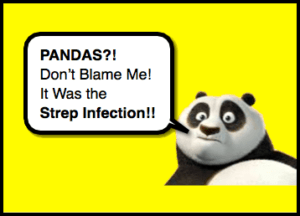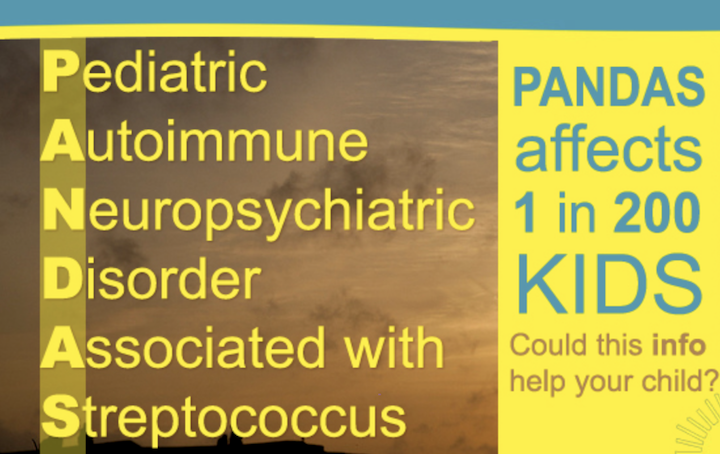When most people hear the word “pandas,” they think of the adorable black and white bears. But did you know that “pandas” is also a term that describes a very serious childhood illness? Pediatric Autoimmune Neuropsychiatric Disorders Associated with Streptococcal Infections, or PANDAS, is a condition that can cause psychiatric problems in children. In this blog post, we will discuss everything about PANDAS: what it is, how it is diagnosed, as well as how it is treated.
Contents
What Is PANDAS?

PANDAS is a condition that can cause psychiatric problems in children. The main symptom of PANDAS is a sudden onset of Obsessive-Compulsive Disorder (OCD). Other symptoms may include anxiety, depression, behavioral problems, hallucinations, Tourette’s syndrome, and ADHD.
Children with PANDAS often have a history of strep throat or other streptococcal infections. It is believed that the immune system overreacts to the infection, which leads to the development of psychiatric symptoms. PANDAS is diagnosed by observing the child’s symptoms and further ruling out other possible causes.
Causes

PANDAS is caused by a streptococcal infection, such as strep throat or scarlet fever. It is believed that the immune system overreacts to the infection, which further leads to the development of psychiatric symptoms. Since the strep bacteria disguises itself to look like normal blood cells, the immune system fights all of these cells, causing further infection.
There are also several risk factors for PANDAS:
- A history of strep throat or other streptococcal infections
- A family history of PANDAS
- A weakened immune system
Some cross-reactive antibodies target the brain—causing OCD, tics, and the other neuropsychiatric symptoms of PANDAS.
Symptoms
The main symptom of PANDAS is a sudden onset of Obsessive-Compulsive Disorder (OCD).
- Other symptoms may include anxiety, depression, behavioral problems, hallucinations, Tourette’s syndrome, as well as ADHD.
- Children with PANDAS often have a history of strep throat or other streptococcal infections. It is believed that the immune system overreacts to the infection, which further leads to the development of psychiatric symptoms.
- An association with neurological abnormalities, such as physical hyperactivity or unusual, jerky movements that are not in the child’s control.
- PANDAS diagnoses by observing the child’s symptoms and ruling out other possible causes.
Side Effects

PANDAS can cause a sudden onset of Obsessive-Compulsive Disorder (OCD). Other symptoms may include
- anxiety
- depression
- behavioral problems
- hallucinations
- Tourette’s syndrome
- ADHD
PANDAS can have a significant effect on a child’s life.
- Interference with school, work, and relationships
- A rapid decline in physical health
- Extreme mood swings become a common occurrence
- Dealing with uncontrollable body movements
- Sleeping problems
- Joint pains
- Anxiety attacks
- Excessive peeing
- Urges to repeat same compulsive actions
- Sensory overload issues
- The child may also start experiencing social isolation
Diagnosis

If you think your child may have PANDAS, it is important to seek medical help right away. It diagnoses by observing the child’s symptoms and moreover ruling out other possible causes.
Your child’s doctor will ask about your family history and perform a physical exam. They may also order lab tests, such as a strep test or an antistreptolysin-O (ASO) titer, to check for the presence of strep bacteria.
A blood test can show whether your child had a recent strep infection even if they recovered. A brain MRI or CT scan may also be ordered to rule out other neurological conditions.
Treatment Options
PANDAS treatment options work with a combination of antibiotics and psychiatric therapy.
- Antibiotics treat strep throat and other streptococcal infections. They can also help reduce the severity of symptoms in some children. The most common antibiotic used to treat PANDAS is penicillin. Other antibiotics include azithromycin, ceftriaxone, and ciprofloxacin.
- Selective serotonin reuptake inhibitors (SSRIs): SSRIs are a type of antidepressant that treat OCD, anxiety, and also depression.
Note: It is important to stay in constant touch with your medical provider if intaking medications to monitor the side effects as well as the efficacy of the medicines.
- Psychiatric therapy can help the child cope with their symptoms and learn how to manage their OCD. Cognitive-behavioral therapy (CBT) is the most common type of therapy for PANDAS. CBT teaches the child how to change their thoughts and behaviors to manage their OCD.
If your child has a sudden onset of OCD or other psychiatric symptoms, it is important to see a doctor right away. Early diagnosis and treatment of PANDAS can further help prevent long-term problems.
Conclusion
PANDAS is a serious condition that can cause psychiatric problems in children. It is important to seek medical help if you think your child may have this disorder. With proper treatment, most children can further lead normal, healthy lives.
If you are looking for affordable Online OCD Counseling MantraCare can help: Book a trial OCD therapy session


